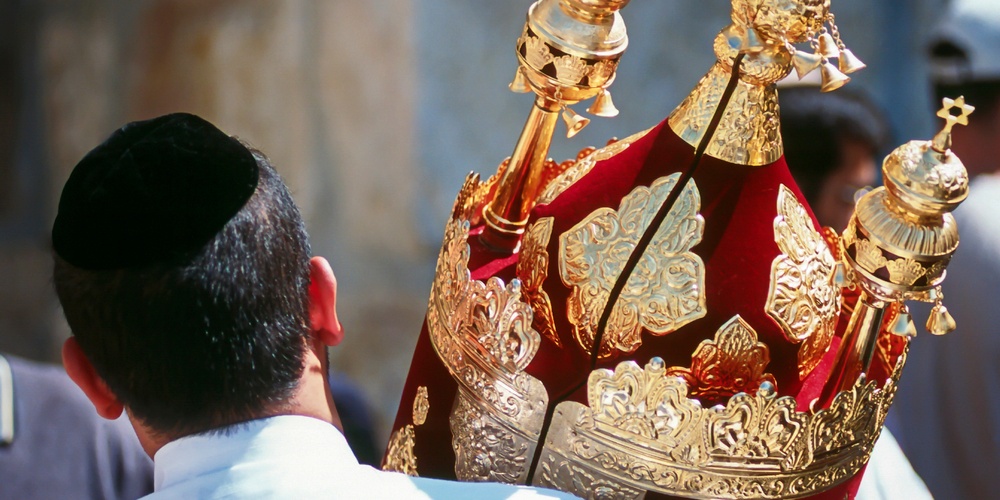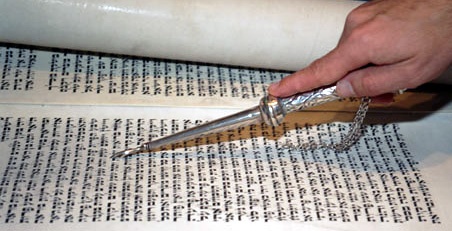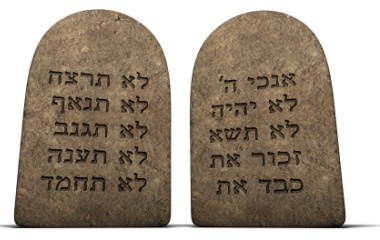
The holiday of Shavuot is, outside of the observant Jewish community, a much-neglected holiday. It lasts only one day (two in the Diaspora), comes just as the summer is arriving and, unlike our other holidays, has no rituals associated with it--no shofar, matzah, or sukkah. The Torah itself makes no mention of any historical event associated with the holiday. Rather, it describes how, seven weeks after Pesach, "you may present a new grain as a meal offering to G-d" (Vayikra 23:15). Of course, from an agricultural perspective, we can readily understand why Shavuot--coming in the midst of the farming season--was only one day long. Summer is no time for a farmer to take a vacation! However, in the midst of the busy season, we need to remind ourselves that although we may work hard, ultimately our blessings emanate from G-d. And no one understands this better than a farmer, who knows that regardless of his toil, if nature does not cooperate, his work will (literally!) bear no fruit.
Even though we all "know" that Shavuot is when we received the Torah, the Torah itself makes no mention of this "fact"; not in Parshat Yitro, where the events of the Sinai are described, nor in Parshat Emor, where the Torah lists the five Biblical holidays. In fact the Talmud posits that, in actuality, the Torah may have been given on the seventh day of Sivan. Furthermore, even if Shavuot was the day we received the Torah, there seems to be little reason to celebrate. A scant forty days later, the Jews were busy dancing around a golden calf, and the Torah they had so recently accepted was shattered in pieces before them.
The Torah that we have now was actually received on Yom Kippur, following the successful pleas of Moshe Rabbeinu for forgiveness on behalf of the Jewish people. The Talmud therefore tells us that Yom Kippur is meant to be a day of celebration; a celebration of the receiving of the Torah, and an opportunity to renew our covenantal relationship with G-d. Secondly, the Talmud relates that contrary to popular notion, the Jews had to be coerced into accepting the Torah, with G-d "lifting the mountain" over the heads of the Jewish people and telling them: you don't have to accept the Torah, but if you don't, this will be your burial place (some choice!). The Talmud tells us that one might have a valid argument should one posit that our neglect of Torah may be justified, as a coerced contract is not enforceable in Jewish law. It was only on Purim that we Jews actually willingly accepted the Torah. So surely Shavuot is no time to celebrate receiving the Torah.
Yet, notwithstanding the above, Shavuot is known as z'man matan Torateinu . And the one custom we do have is to stay up all night learning, in demonstration of our acceptance of this wonderful gift. Perhaps we can understand this dilemma by carefully analyzing the phrase z'man matan Torateinu, "the time of receiving of our Torah". Is it not the Torah of G-d that we accepted?
The Torah may have been given by G-d, but it is our Torah. We are its protectors and interpreters. Lo bashamayim hee, the Torah is not in heaven. It is meant for observance here on earth, and therefore, the Rabbis can even "overrule" G-d-provided their arguments are based on the divine principles enunciated in the Torah (see Bava Metzia 59b). It is the rabbis' interpretation that counts, not the heavenly one.
Shavuot provides a classic example of the power of rabbinic interpretation. The Torah tells us that Shavuot is to be observed 50 days "from the morrow after the Shabbat" following Pesach. Apparently, the count of the omer is to begin on the first Saturday night following Pesach (somewhat akin to Selichot, which always begin on a Saturday night), with Shavuot falling exactly seven weeks later. This is how the Zedukim and later the Karaites interpreted the verse, and thus, they celebrated Shavuot on Sunday year after year (it made for a nice long weekend). Though their interpretation appears to conform with the simple meaning of the Torah, rabbinic interpretation insisted that the Shabbat, in this context, refers to Passover; and hence, the omer count begins on the second day of Passover.
Even the observance of two days of Shavuot in the Diaspora should not apply on Shavuot. The length of time it took for the news of the declaration of the new moon to reach the Diaspora forced us to adopt a second day of Yom Tov. On Shavuot, there was no such problem. It was to occur 50 days after Passover, and by then everybody knew the correct day of Passover. Yet, based on the directive of our sages, we do observe two days. It is our Torah, not G-d's.
Our acceptance of the Torah means our acceptance of the right and duty of our Sages to interpret Torah so that it can be applied on earth. We may not have accepted the Torah willingly on Shavuot; it may have taken well over a thousand years until the Persian Jews enthusiastically embraced Torah. What we received on Shavuot was the license to apply divine principles to earthly issues. May we merit to embrace the totality of Torah, both divine and earthly, and let it guide us--as it has so successfully for thousands of years.



